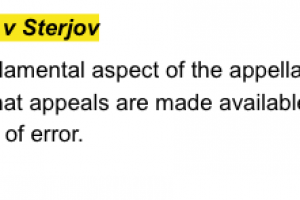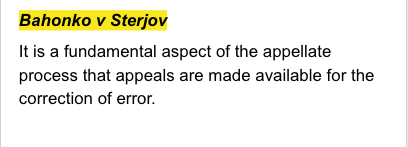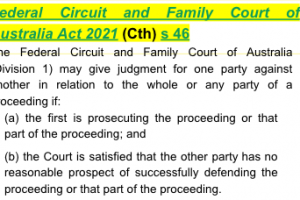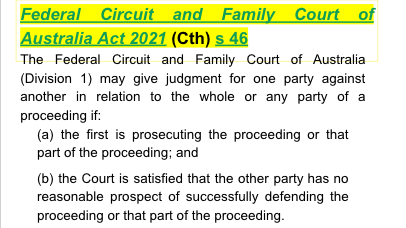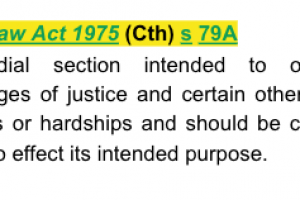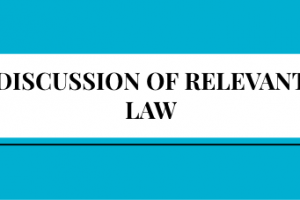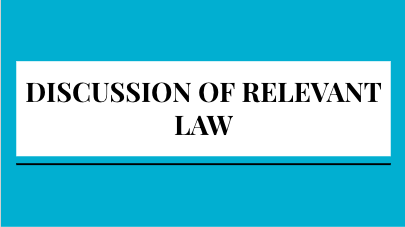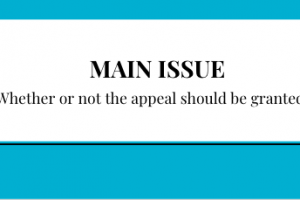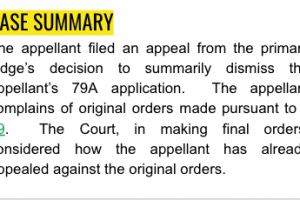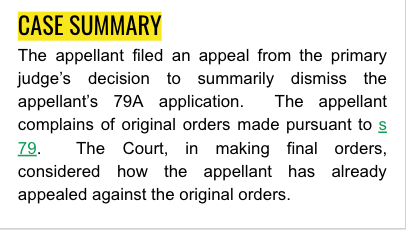- · 4657 friends
Appellant Seeks to Set Aside Final Property Orders

Kingston & Field (No 2) [2022] FedCFamC1A 87 (30 June 2022)

The husband filed an appeal against the primary judge’s decision to summarily dismiss his 79A application. The husband complains about original orders made pursuant to s 79 (Alteration of property interests). In making final orders, the Court considered how the husband has already appealed against the original orders.

Facts:
The parties were married for 14 years and, at the time of final orders, there were three children of the marriage under the age of 18. On 21 November 2019, the primary judge made the final orders, the effect of which was to divide the property of the parties such that the wife received 47.5 percent of the property and the husband received 52.5 percent of the property.
The husband was ordered to pay the wife $1,232,616 within three months and, in default of payment, the property at S Street, Suburb B (“the Suburb B property”) was to be sold. On 17 December 2019, the husband appealed against the final orders. Pending appeal, the husband sought and, on 30 April 2020, was granted a stay of the orders on the condition that he pay his wife the sum of $500,000 within eight weeks.
The husband did not comply with this condition of the stay. On 30 April 2020, the husband filed an appeal against the orders granting the stay. That appeal was deemed abandoned and the husband’s application to have it reinstated was dismissed by the Full Court of the Family Court of Australia (as it was then known) on 17 July 2020. On 24 September 2020, the appeal against the final orders was dismissed.
The husband made an application for special leave to appeal to the High Court of Australia (“the High Court”), which was refused on 5 November 2020. On 23 December 2020, the husband's application to vary the final orders was dismissed.
On 4 February 2021, the husband's application for special leave to appeal the 24 September 2020 decision of the Full Court of the Family Court of Australia (as it was then known) was refused. On 25 March 2021, the wife sought enforcement of the final orders.
The wife’s application to be appointed trustee for sale was dismissed. The wife appealed that order and, on 16 November 2021, the Full Court of the Family Court of Australia (as it was then known) made orders that the wife be paid $1,518,518.16 from the proceeds of the sale of the Suburb B property.
On 29 June 2021, the wife’s enforcement application was determined and the husband was ordered to pay the wife the sum in Order 1 of the final orders by noon on 6 July 2021. Both parties were granted leave to file and rely on the summaries filed other than in accordance with the procedural orders.
The husband sought that the order made by the trial judge be discharged and that the applications that were before the trial judge on 16 December 2021 be remitted for re-hearing in the Parramatta Registry of the Family Court by a judge other than [the primary judge].

Issue:
Whether or not there was a miscarriage of justice on the primary judge's decision to summarily dismiss the husband's 79A application be granted.

Applicable law:

(a) the first is prosecuting the proceeding or that part of the proceeding; and(b) the Court is satisfied that the other party has no reasonable prospect of successfully defending the proceeding or that part of the proceeding.

Analysis:
The Full Court set out in Barker v Barker [2007] FamCA 13; (2007) 36 Fam LR 650 at [120]:
"A miscarriage of justice under s79A(1)(a) will occur if circumstances exist which “for some significant reason, make the order contrary to law and justice according to the law as it relates to the integrity of the judicial process (original emphasis)”
Section 79A of the Act is not a mechanism through which a person who is aggrieved with a final determination under s 79 of the Act may seek answers to outstanding queries or concerns.
The primary judge concluded that the husband’s perception that the final orders were unjust (or unjustly achieved) is not a basis for relief under s 79A of the Act. The primary judge also set out the conclusion that “all of the matters raised in the s 79A application appear to have been ventilated at trial, various interlocutory hearings, or on appeal”. Thus, there was no miscarriage of justice.
Conclusion:
The appeal is dismissed. The husband pays the wife’s costs in a fixed sum of $13,635.82 within 14 days.



